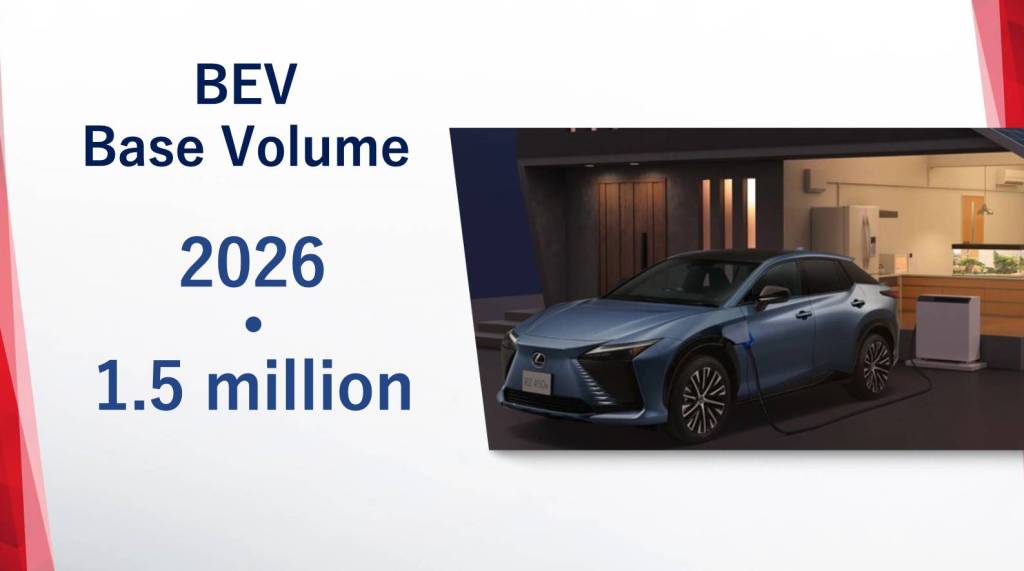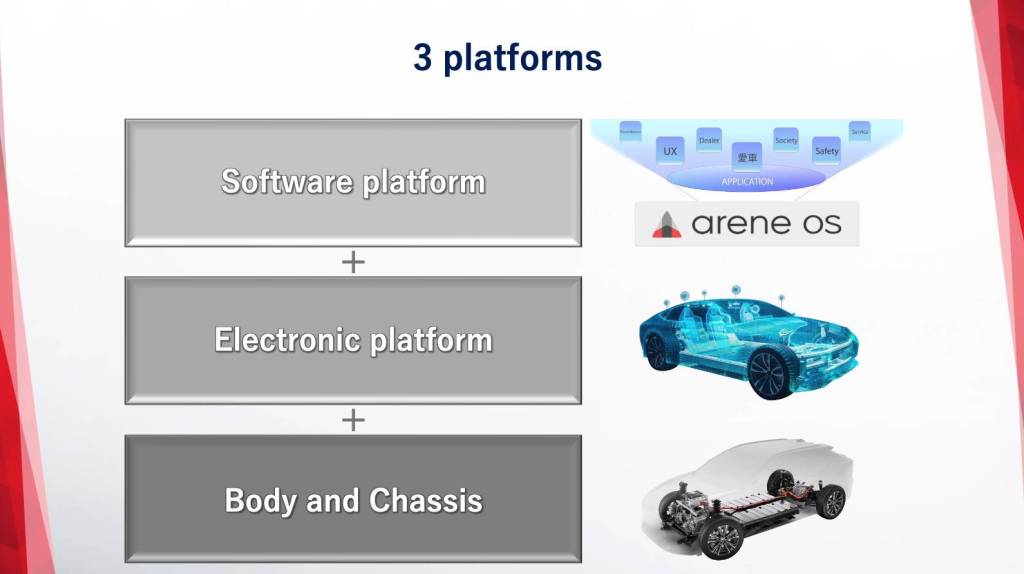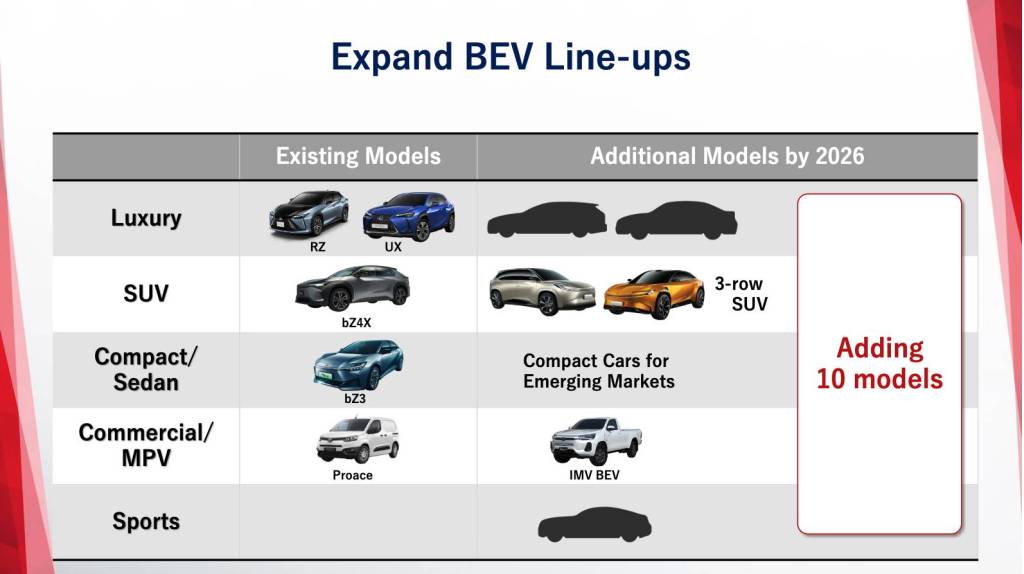Toyota made a number of announcements that suggest it might be stepping up its electric vehicle strategy versus what has been previously announced.
In an annual roundup of the company’s financial results presented on Wednesday, president and CEO Koji Sato stated that it plans to launch ten models ranging from luxury vehicles to compact cars and commercial vehicles, “mainly in the United States and China.”

Toyota 1.5 million EV baseline
The executive re-upped the company’s target of 1.5 million battery electric sales by 2026 as a “base volume,” and said that for battery supply it “will seek to speedily secure the necessary volume by increasing our in-house production capacity and collaborating with our partners.”
That suggestion of boosted capacity hasn’t yet resulted in any update of Toyota’s U.S. EV targets, however. At last update, in 2021, Toyota anticipated that 85% of its U.S. vehicles sold in 2030 would still have tailpipes.

Toyota three platforms for 2026 EVs
Toyota pointed out that its 2026 EVs may actually be built on three different platforms: a software platform, an electronic platform, and a body and chassis platform. It has also said that it’s completely rethinking the manufacturing process for EVs.
The company also announced Wednesday that it will debut its next-generation EV (above) in concept form at the Tokyo auto show in October. In a teaser sent out ahead of the financial presentation, the photo was captioned with “greater efficiency,” and “set hearts racing.”
Toyota teased a number of EV concepts in late 2021, with an announcement that it planned 30 new EVs globally by 2030, so it’s unclear how much overlap there might be between those former concepts and those that are production-bound. In October it reportedly paused development on some EVs, while mulling a larger commitment.
It’s unclear if that commitment was made, but in Wednesday’s update, Toyota included a three-row SUV in its timeline of additional models by 2026.

Toyota future EVs
Today, the Toyota bZ4X electric crossover is a low-volume model for multiple markets, the bZ3 is an electric sedan for China, and the Proace Electric is an electric van variant for China and Europe. There’s also the Lexus RZ for the U.S., China, and Europe, and the Europe-specific Lexus UX 300e.
Although Toyota may be focusing more on EVs for North America, it’s by no means pivoting its focus globally to them quite yet. It aims to boost its market share in emerging markets and Asia, and in Wednesday’s presentation it pointed to projections that in Asia, the hybrid market is expected to rise from 8% in 2022 to 21% in 2030, while battery electric models will rise to 5% by then, from just 1% in 2022.
As Toyota has argued in recent years, with limited supplies of lithium, it can yield a larger reduction in overall emissions by producing hybrids rather than relying entirely on EVs. Certainly, not everyone agrees.







